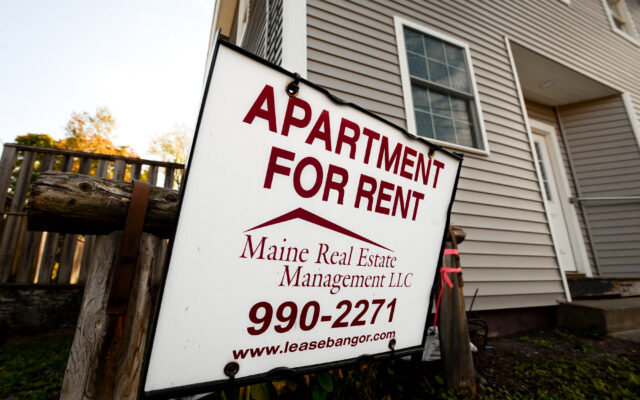
Renting in Maine is unaffordable, but it’s the best option in New England
By Kathleen O’Brien, Bangor Daily News Staff
Someone earning minimum wage needs to work 61 hours a week to afford a modest one-bedroom apartment in Maine.
That’s what an annual study on the affordability of rental housing across the U.S. found. The study, compiled by the National Low Income Housing Coalition, compared each state’s minimum wage and the cost of renting a one- and two-bedroom unit there, then ranked the states based on how affordable they are.
Maine, like last year, was ranked 26th, which makes it more affordable than any other state in New England. That’s because someone needs to earn $28.42 per hour to afford a two-bedroom unit in Maine — nearly double Maine’s current minimum wage of $14.65 — according to the study.
High housing costs can force essential workers, especially young people, to move elsewhere and restrict the ability of families that stay to save and buy a property, putting the dream of homeownership further out of reach.
“People are working hard in Maine and they still can’t afford a place to call home,” said Laura Mitchell, executive director of the Maine Affordable Housing Coalition. “If we want to have a thriving, growing economy in Maine, we need to be looking at housing as the solution to build that economy.”
The Coalition also concluded that even in South Dakota, the most affordable state, someone earning minimum wage needs to work more than 60 hours each week to afford a two-bedroom rental home.
Fair market rent for a one- and two-bedroom unit in Maine sits at $1,166 and $1,478, respectively, according to the National Low Income Housing Coalition, but someone earning $14.65 per hour can only afford to spend $762 each month on housing.
Additionally, 26 percent of the nearly 589,000 households in Maine are renters, the study found.
Those who rent are often at entry-level, minimum wage or low-paying positions supporting some of Maine’s essential industries, including tourism and hospitality, health care and farming, Mitchell said.
“We all want someone working at the coffee shop and we all want an EMT to show up when our loved one has a heart attack,” she said. “Those are the people that need a place to live in Maine and they can’t afford it right now.”
While Maine is in a better position than many other states, including the rest of New England, Mitchell said it’s important to realize that Maine is getting less affordable.
Last year, the average Mainer needed an hourly wage of at least $26.38 to afford a two-bedroom unit. Now, residents need to earn $28.42 per hour to afford that same unit.
While increasing wages would help, Mitchell said the key to improving housing affordability is to create more units of all kinds and not shy away from development. Adding to the state’s housing stock would chip away at easing Maine’s vast housing shortage, and more supply would lower rents.
More towns allowing homeowners to add in-law apartments over their garages or accessory dwelling units on their lots, would also help, Mitchell said.
“We need to invest in it and we need to support and say ‘yes’ to new housing in all towns in Maine,” Mitchell said. “People want a thriving community, but when it comes to a public meeting, very few voices are thinking about the big picture.”